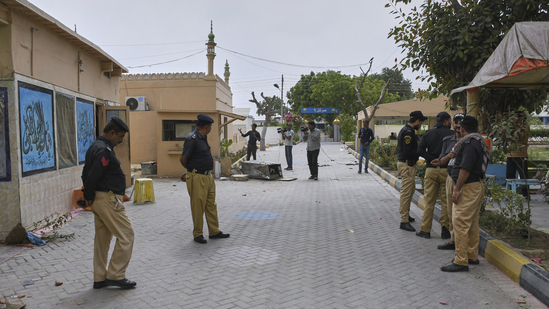New Delhi/Islamabad (National Times): India on Sunday strongly rejected accusations from Pakistan linking it to a deadly suicide car bombing that struck North Waziristan, calling the claims baseless and made “with contempt.”
The Ministry of External Affairs (MEA) in New Delhi issued a stern statement in response to remarks from the Pakistan Army, which blamed India for the June 28 blast that killed at least 14 soldiers and injured over two dozen others.
“We have seen an official statement by the Pakistan Army seeking to blame India for the attack in Waziristan on 28 June. We reject this statement with the contempt it deserves,” the MEA said.
One of the Deadliest Attacks in Recent Months
The suicide bombing occurred in Khadi village, North Waziristan, around midday on Saturday. The attacker rammed an explosive-laden vehicle into a military convoy despite a curfew imposed in the area to facilitate troop movement. The blast caused extensive damage, with approximately 800 kilograms (1,760 pounds) of explosives reportedly used, according to the Associated Press.
Reports stated that 15 soldiers and 10 civilians, including women and children, were injured. Pakistan’s military later updated the official casualty toll to 13 soldiers dead and three civilians wounded.
“In this tragic and barbaric incident, three innocent civilians, including two children and a woman, also got severely injured,” said the Pakistan Army in a statement, as reported by Reuters.
Militant Group Claims Responsibility
The Hafiz Gul Bahadur group, a notorious faction of the Pakistani Taliban (Tehreek-e-Taliban Pakistan, TTP), claimed responsibility for the attack. The group has been active in Khyber Pakhtunkhwa, a province riddled with militant outfits targeting security personnel.
Security analysts have previously described the Hafiz Gul Bahadur faction as more dangerous than the mainstream TTP, given its expanding influence and sophisticated operations.
Regional Tensions on the Rise
Pakistan’s government has frequently accused both India and Afghanistan of harboring or supporting extremist elements operating within its borders. However, in this case, no evidence was presented to substantiate Islamabad’s accusation against New Delhi.
India’s rejection of the allegations is consistent with its broader stance of dismissing what it calls “diversionary tactics” by Pakistan’s military establishment to deflect attention from internal instability and extremist violence.
As tensions flare once again in the region, analysts warn that such high-stakes blame games risk further inflaming diplomatic ties between the two nuclear-armed neighbors.

